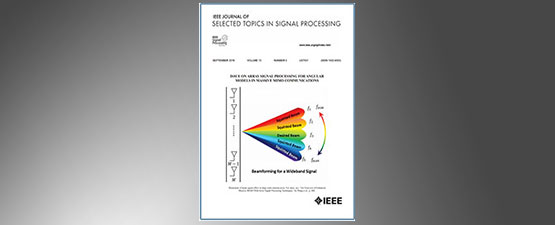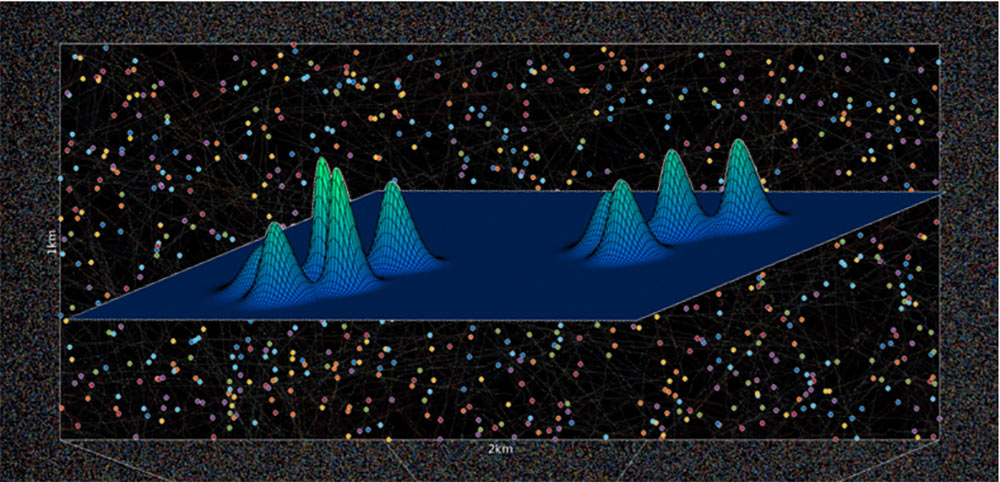IEEE JSTSP Special Issue on Advanced Signal Processing for Terahertz Communications in 6G and Beyond Networks
Manuscript Due: 10 December 2022
Publication Date: September 2023
CFP Document
Do you have a colleague whose signal processing knowledge and expertise might be of greater interest to the broader Signal Processing Society community? SPS is now soliciting nominations for speakers to serve for two Society programs, Distinguished Lecturer Program (DL) and Distinguished Industry Speaker Program (DIS).
With the goal of turning data into information, and information into insight, the Sarvajanik College of Engineering & Technology (SCET), in association with IEEE SPS SCET Student Branch Chapter, Gujarat Section and IEEE SCET Student Branch organized a National Level Project Competition on Data Science Challenge 1.0 (DSC 1.0).

Manuscript Due: 10 December 2022
Publication Date: September 2023
CFP Document

A brief introduction to state estimation in multi-object system that arises from applications where the number of objects and their states are unknown and vary randomly with time. State space model (SSM) is a fundamental concept in system theory that permeated through many fields of study.
We are seeking a highly motivated and skilled PhD student to work with us on the development of a digital phenotyping strategy for children with autism. The PhD student will use machine learning approaches to provide automated measures of body movement and social scenes for children with autism, with the goal to support automated autism diagnosis and/or fine-grained characterization of autistic symptoms.
The large antenna arrays with hybrid analog and digital (HAD) architectures can provide a large aperture with low cost and hardware complexity, resulting in enhanced direction-of-arrival (DOA) estimation and reduced power consumption. This paper investigates the trade-off between DOA estimation and power consumption in large antenna arrays with HAD architectures.
We present a general nonlinear Bayesian filter for high-dimensional state estimation using the theory of reproducing kernel Hilbert space (RKHS). By applying the kernel method and the representer theorem to perform linear quadratic estimation in a functional space, we derive a Bayesian recursive state estimator for a general nonlinear dynamical system in the original input space. Unlike existing nonlinear extensions of the Kalman filter where the system dynamics are assumed known, the state-space representation for the Functional Bayesian Filter (FBF) is completely learned online from measurement data in the form of an infinite impulse response (IIR) filter or recurrent network in the RKHS, with universal approximation property.
In this paper, we propose CE-BASS, a particle mixture Kalman filter which is robust to both innovative and additive outliers, and able to fully capture multi-modality in the distribution of the hidden state. Furthermore, the particle sampling approach re-samples past states, which enables CE-BASS to handle innovative outliers which are not immediately visible in the observations, such as trend changes.
Time-of-arrival (TOA) based localization plays a central role in current and future localization systems. Such systems, exploiting the fine delay resolution properties of wideband and ultra-wideband (UWB) signals, are particularly attractive for ranging under harsh propagation conditions in which significant multipath may be present. While multipath has been traditionally considered detrimental in the design of TOA estimators, it can be exploited to benefit ranging.
Target detection is studied for a cloud multiple-input multiple-output (MIMO) radar using quantized measurements. According to the local sensor quantization strategies and fusion strategies, this paper discusses three methods: quantize local test statistics which are linearly fused (QTLF), quantize local test statistics which are optimally fused (QTOF), and quantize local received signals which are optimally fused (QROF).